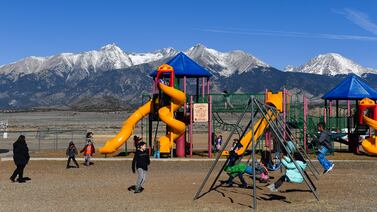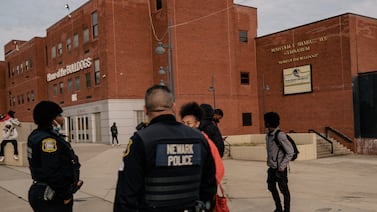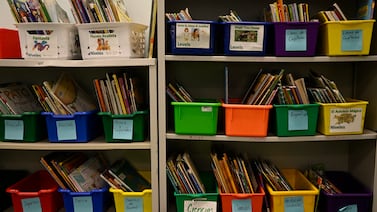Sign up for Chalkbeat New York’s free daily newsletter to keep up with NYC’s public schools.
Roughly half of New York City’s third through eighth graders were proficient in reading and math, according to last year’s state test scores released by city officials Wednesday.
The scores provide a first look at student performance under new learning standards, after state officials revamped the tests for the most recent academic year. The tests, administered by schools across the state each spring, offer one measure of how students are faring.
Though 51.7% of the city’s third through eighth grade students were considered on grade level based on their reading exam scores, and 49.9% were on grade level for math, student performances diverged across grades.
Eighth grade students, for example, fared worse on math exams — with just 42.3% achieving proficiency, compared to 55% of third graders.
On reading tests, the opposite occurred, with 59.9% of eighth graders considered on grade level, compared to about 48% of third graders.
In a statement Wednesday, schools Chancellor David Banks called the results “encouraging,” pointing to an “upward trajectory” from last year’s exams, which saw roughly 49% of students pass reading tests and about 38% achieve proficiency in math.
“These results tell us: we’re on the right track,” he said. “We are making strides in our recovery from the pandemic, and we are going to build on this success this year and beyond.”
But state officials have warned against comparing the data to prior years, and the city’s Education Department acknowledged the results were not “directly comparable” in a press release Wednesday.
This past spring, students took new exams that followed the Next Generation Learning Standards, which were established after revisions from the controversial Common Core. The state also established new thresholds to measure student proficiency, which delayed public release of the test scores.
David Bloomfield, a professor of educational leadership, law, and policy at Brooklyn College and the CUNY Graduate Center, called the city’s framing of the results “nonsensical.”
“They need to go back to math class,” he said in an email. “Lack of comparability means this snapshot can’t be put into historical perspective.”
But even as the exams have changed, disparities continue to appear among student results.
About 77.6% of Asian American students and 70.2% of white students demonstrated proficiency their math exams, compared to 34.3% of students who are Black and 35.7% who are Latino. On reading tests, 72.3% of Asian American students and 69.5% of white students were on grade level, compared to 40.3% of Black students and 39.4% of Latino students.
Among students with disabilities, 21.7% demonstrated proficiency in reading and 24.4% did so in math. Among students learning English as a new language, 11.1% were on grade level in reading and 21.5% were in math.
Want to see how your school fared on the state exams? Use our searchable database below:
Julian Shen-Berro is a reporter covering New York City. Contact him at jshen-berro@chalkbeat.org







